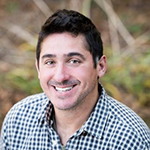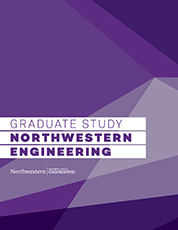New Son, New Focus on Climate Change
Dan Butt combined inspiration from his newborn child with skills he learned in the EDI program to chart a new course for his professional future.
When Dan Butt (EDI '13) looked at his newborn son’s face for the first time, it was more than a personal life-changing experience. It gave him a new direction professionally.
“When my son was born, I was thinking about his future," Butt said. "I was asking myself, ‘How can I be the best ancestor to his children's children? What work can I be doing?’”
 That son has now passed his first birthday. Reciprocal, the consulting firm Butt started after his family grew, will do the same this August.
That son has now passed his first birthday. Reciprocal, the consulting firm Butt started after his family grew, will do the same this August.
Reciprocal is a strategic design and innovation collective supporting mission-driven organizations to envision and realize their potential to support the transition to a more sustainable, regenerative, and just future.
Butt brings the lessons he learned a decade ago as a student in Northwestern's Master of Science in Engineering Design Innovation (EDI) program.
Butt chose the EDI program because of its smaller cohort size and its industry connections. Class projects with high-profile companies created a safe space to learn and experiment with the techniques being taught.
“I appreciated that we had real clients, that we were working with Samsung, Procter & Gamble, and great local nonprofits,” he said. “We were doing projects and had an opportunity to go out into the world. I also appreciated the opportunities to learn from the other great programs at Northwestern. Because of that, EDI was a great experience for me.”
Butt leveraged that great experience into accelerated career growth.
After graduation, Butt spent three years as the associate director of design with UnitedHealth Group. From there he transitioned to Feeding America, a non-profit that provides food to those in the United States facing hunger. Butt spent more than five years as director for innovation and service design for the organization that works with 200 food banks and more than 60,000 partner food pantries.
He said EDI’s focus on human-centered design was key to his success throughout. That principle holds that the best way to design the most useful products and services is to start with the experience of the stakeholders most involved.
“There are lots of opportunities for the human-centered design process to be useful in the social sector,” he said. “I’ve found success comes from matching the organization's ambitions with the unique contribution they can make given the resources and relationships available. Human-centered design can be an important strategic approach to helping organizations see what’s possible.”
Knowing how valuable real client work was for himself as a student, Butt partnered with EDI to offer several course projects and internship opportunities while at Feeding America.
Now he's found a new way to share his knowledge with EDI students. Starting this spring, Butt will co-teach a new course called Systemic Design for Social Change.
He said the opportunities for students to take key EDI principles and apply them to civic and social sectors are vast, and they're only continuing to grow.
“I'm really excited for the EDI students to get exposed to how we can begin to think more systematically and how we can support our clients to take that bigger view,” he said. “There are lots of opportunities for students to do this work.”

